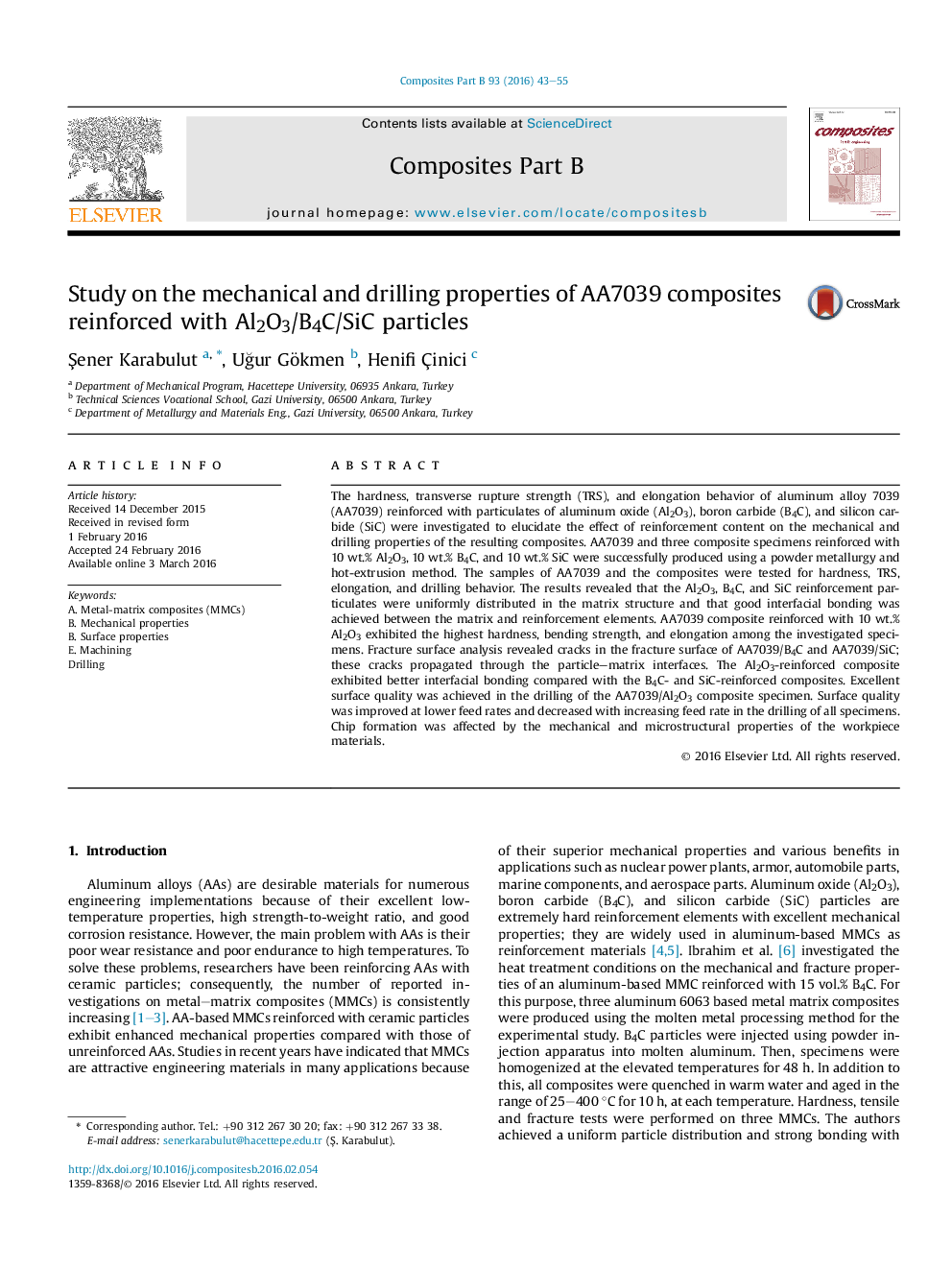| Article ID | Journal | Published Year | Pages | File Type |
|---|---|---|---|---|
| 816840 | Composites Part B: Engineering | 2016 | 13 Pages |
The hardness, transverse rupture strength (TRS), and elongation behavior of aluminum alloy 7039 (AA7039) reinforced with particulates of aluminum oxide (Al2O3), boron carbide (B4C), and silicon carbide (SiC) were investigated to elucidate the effect of reinforcement content on the mechanical and drilling properties of the resulting composites. AA7039 and three composite specimens reinforced with 10 wt.% Al2O3, 10 wt.% B4C, and 10 wt.% SiC were successfully produced using a powder metallurgy and hot-extrusion method. The samples of AA7039 and the composites were tested for hardness, TRS, elongation, and drilling behavior. The results revealed that the Al2O3, B4C, and SiC reinforcement particulates were uniformly distributed in the matrix structure and that good interfacial bonding was achieved between the matrix and reinforcement elements. AA7039 composite reinforced with 10 wt.% Al2O3 exhibited the highest hardness, bending strength, and elongation among the investigated specimens. Fracture surface analysis revealed cracks in the fracture surface of AA7039/B4C and AA7039/SiC; these cracks propagated through the particle–matrix interfaces. The Al2O3-reinforced composite exhibited better interfacial bonding compared with the B4C- and SiC-reinforced composites. Excellent surface quality was achieved in the drilling of the AA7039/Al2O3 composite specimen. Surface quality was improved at lower feed rates and decreased with increasing feed rate in the drilling of all specimens. Chip formation was affected by the mechanical and microstructural properties of the workpiece materials.
